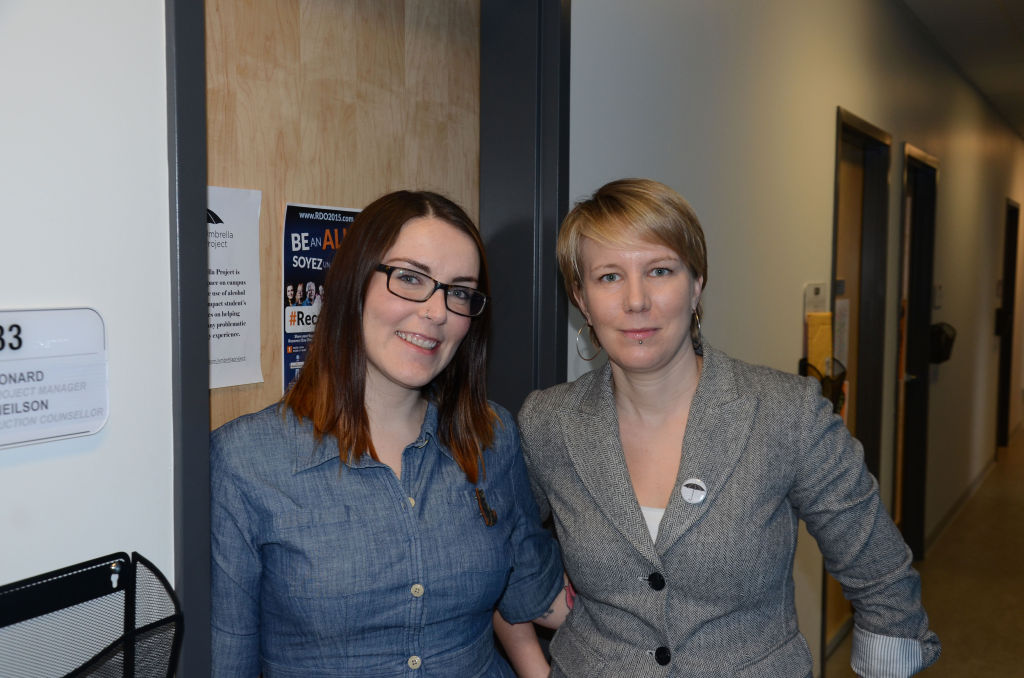
Often, students can find themselves experimenting with alcohol and other substances, and the AC Umbrella Project is here to help make sure they do so safely and responsibly.
Amanda Neilson is a harm reduction consultant from Rideauwood Addiction and Family Services who is cooperating with Algonquin College in the AC Umbrella Project, a service to help students make safer choices when it comes to substance use.
“Holidays like Christmas, St. Paddy’s Day and 4/20 tend to inspire more use,” said Neilson.
However, habitual use can be just as bad as the binge drinking and indulgence in other substances that come with the holidays.
“It’s really not about how much you’re using, or how often you’re using, but what are the effects?” said Neilson. “If every time a person’s going out, they’re drinking and they lose their keys, they lose their phone or if they get in fights with friends, then that’s a problem.”
College students are especially at risk for substance abuse, use and dependency that will cause problems for them later on in life. Neilson feels that one of the many pitfalls for students are the expectations of what college life is like.
“There’s also this idea that everybody uses at college, and so when we feel like everybody’s doing something, our decisions tend to be weighed by that. There’s this idea that college life is supposed to be ‘let go, let’s get wild, everybody’s doing it!’” said Neilson, though she stated these perceptions are actually incorrect. “We know through surveys of college students, only 16per cent of students have smoked pot. And that’s through the National College Health Assessment, that’s information that we received. But a lot of times, when you talk to students, they believe everybody’s smoked pot in college.”
The Umbrella Project also has some tips for students who do want to be safer when it comes to party-time.
“For students who want to moderate their intake, there’s a couple of different strategies. There’s drinking light beer, or drinking beverages that have a lower alcohol percentage,” said Neilson. “There is being able to have a plan: ‘how much am I going to have to drink tonight? I’m going to stop after I’ve had that much’.”


